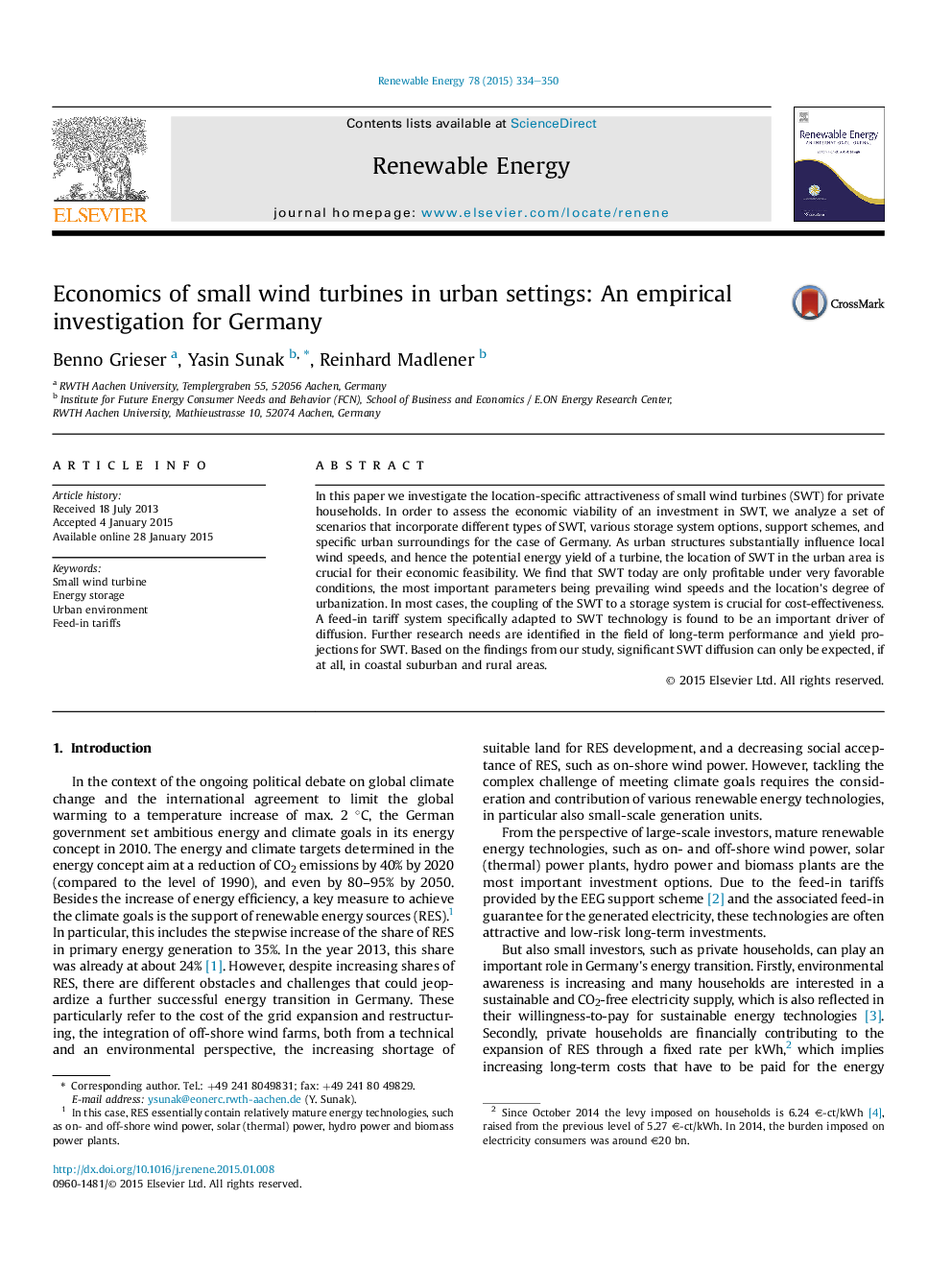| Article ID | Journal | Published Year | Pages | File Type |
|---|---|---|---|---|
| 6767404 | Renewable Energy | 2015 | 17 Pages |
Abstract
In this paper we investigate the location-specific attractiveness of small wind turbines (SWT) for private households. In order to assess the economic viability of an investment in SWT, we analyze a set of scenarios that incorporate different types of SWT, various storage system options, support schemes, and specific urban surroundings for the case of Germany. As urban structures substantially influence local wind speeds, and hence the potential energy yield of a turbine, the location of SWT in the urban area is crucial for their economic feasibility. We find that SWT today are only profitable under very favorable conditions, the most important parameters being prevailing wind speeds and the location's degree of urbanization. In most cases, the coupling of the SWT to a storage system is crucial for cost-effectiveness. A feed-in tariff system specifically adapted to SWT technology is found to be an important driver of diffusion. Further research needs are identified in the field of long-term performance and yield projections for SWT. Based on the findings from our study, significant SWT diffusion can only be expected, if at all, in coastal suburban and rural areas.
Related Topics
Physical Sciences and Engineering
Energy
Renewable Energy, Sustainability and the Environment
Authors
Benno Grieser, Yasin Sunak, Reinhard Madlener,
